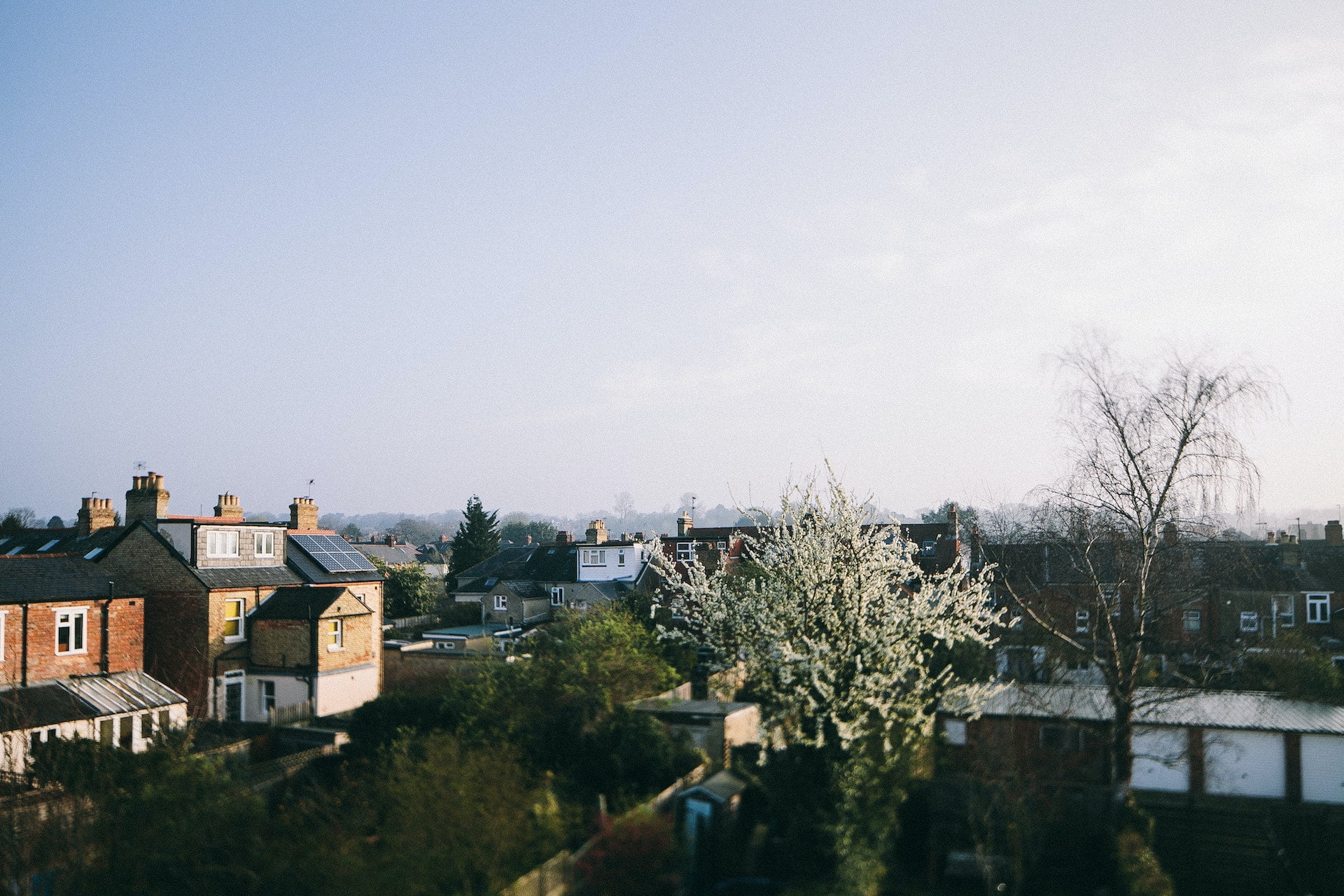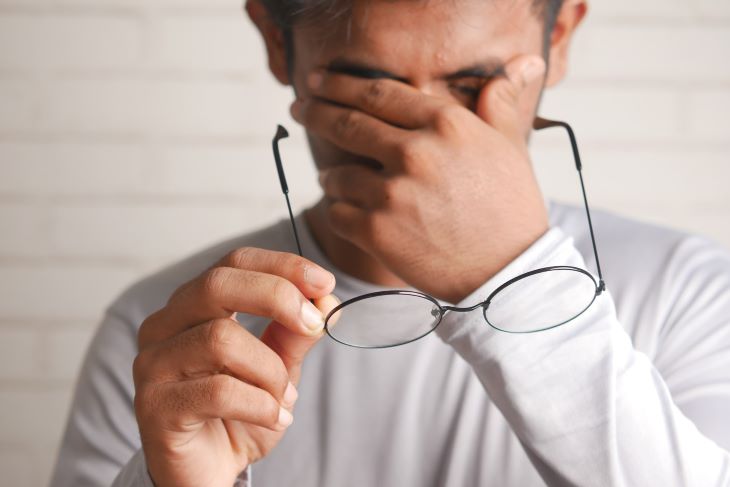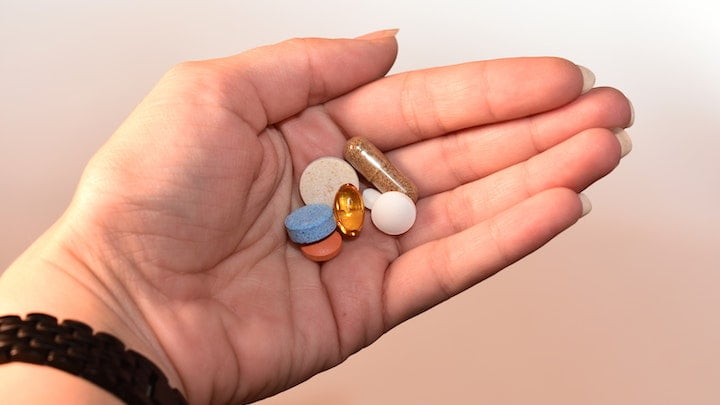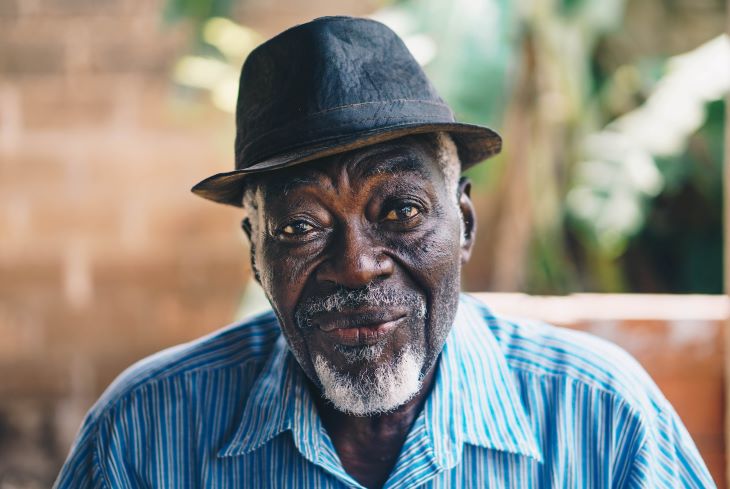Our guide to drug and alcohol rehab in Staffordshire can help you take the first steps towards seeking help and achieving long-term recovery from your addiction. Whether it be drug addiction, alcohol addiction, binge drinking or even behavioural addictions like a gambling addiction – we can help find you the best person-centered care.
What Are The Signs and Symptoms of a Drug or Alcohol Addiction?

Would you be able to spot the signs if you or someone you know had a drug or alcohol addiction?
Knowing the symptoms of addiction can quite literally save lives.
If you are concerned about yourself or someone else, read the below signs and see if they apply to your situation.
Signs and symptoms of a drug or alcohol addiction include:
- Going through withdrawal symptoms when you stop using the substance
- Building up a tolerance to the substance
- Continuing to use the substance even when you try to stop
- Becoming distant from friends and family members
- Using the substance in dangerous or inappropriate situations
- Only associating with other people who also use substances
- Lying to friends and family about your use of the substance
- Spending more time using the substance than taking care of responsibilities
If you recognise some of these signs in yourself or someone else, it may be time to start thinking about the possibility of attending drug and alcohol rehab in Staffordshire.
At OK Rehab, we offer free advice from a team of non-judgemental professionals, many of whom are in recovery and understand how hard it can be to change your relationship with addiction.
To find out more, simply reach out to our 24/7, confidential hotline on 0800 326 5559.
What Is The Difference Between Addiction and Dependency?

The terms ‘addiction’ and ‘dependency’ are often used interchangeably, with many people believing that they mean the same thing. In fact, they are very different.
Dependence refers to the physical or psychological effects that the substance has on you.
You may be dependent on drugs or alcohol if you experience withdrawal symptoms when you stop using them, for example.
Addiction, on the other hand, is a type of brain disease that causes chronic relapsing. [1]
The affected person may be unable to stop using the substance, build a tolerance to it and prioritise it above all responsibilities.
You can be dependent on a substance without being addicted to it. When you are prescribed a medication, your body can become dependent on it when used long-term.
Addiction and dependence often go hand-in-hand, but they are not the same thing.
How is a Drug or Alcohol Addiction Diagnosed?

Diagnosing an addiction should only be done by a doctor, as a self-diagnosis may not be correct and may not encompass the scope of the problem.
There are several ways that a doctor may assess you for an addiction, with the most common being the AUDIT and the CAGE questionnaire.
AUDIT
The Alcohol Use Disorder Identification Test (AUDIT) is a basic test composed of ten simple questions that can identify unhealthy and potentially dangerous behaviours around alcohol.
Your doctor will ask you the following questions and give you points depending on your answers.
- How often do you have a drink containing alcohol?
- How many units of alcohol do you drink on a typical day when you are drinking?
- How often have you had 6 or more units if female, or 8 or more if male, on a single occasion in the last year?
- How often during the last year have you found that you were not able to stop drinking once you had started?
- How often during the last year have you failed to do what was normally expected from you because of your drinking?
- How often during the last year have you needed an alcoholic drink in the morning to get yourself going after a heavy drinking session?
- How often during the last year have you had a feeling of guilt or remorse after drinking?
- How often during the last year have you been unable to remember what happened the night before because you had been drinking?
- Have you or somebody else been injured as a result of your drinking?
- Has a relative or friend, doctor or other health worker been concerned about your drinking or suggested that you cut down?
If you receive 20 points or more, this can suggest that you have an addiction to alcohol.
CAGE questionnaire

Another simple test is the CAGE questionnaire which stands for Cut, Annoy, Guilty and Eye.
This test is even quicker to perform than the AUDIT as it is composed of just four questions.
- Do you ever feel that you need to cut down on your substance use?
- Do you feel annoyed when other people comment on your substance use?
- Do you ever feel guilty about your substance use?
- Do you ever use substances first in the morning when you open your eyes?
The more points you score, the greater the chance that you have an addiction to drugs or alcohol.
At OK Rehab, we offer free advice from a team of non-judgemental professionals, many of whom are in recovery and understand how hard it can be to change your relationship with addiction.
To find out more, simply reach out to our 24/7, confidential hotline on 0800 326 5559.
What Should I Look For When Choosing a Rehab?

Most people have never needed to choose a rehab clinic before, so it’s understandable that you may be feel uncertain when it comes to what to look for.
Below are just a few things that you should be looking for when choosing a rehab clinic in Staffordshire:
- Has the rehab clinic been successfully running for more than 20 years?
- Can you find good reviews from multiple sources?
- Are the staff trained and qualified?
- Do their prices work with your budget?
- Does the Staffordshire clinic appear clean, organised and well-run?
- Is it in a location that works for you?
- Are staff paid a fair wage and given the opportunity to advance in their careers?
Don’t be afraid to speak to several clinics in Staffordshire and even visit them before committing to a psychiatric treatment programme.
After all, this may be the largest investment in your health that you will ever make.
Should I Choose Private Rehab or NHS Rehab?

You will not usually have a choice between private rehab and NHS rehab, as they are completely separate from each other.
If you have the option to afford private rehab then you will not be eligible for NHS rehab.
Private rehab in Staffordshire involves paying for your addiction treatment yourself. This may be from your own savings, donations from friends and family members or funded by the community.
The benefits of private rehab involve a fast and simple admissions process and access to high-quality psychiatric treatment.
NHS-funded rehab is addiction treatment that is paid for by the NHS.
This means that you will not need to pay anything towards your psychiatric treatment, which is great for those with lower incomes.
It can be very difficult to access NHS-funded rehab as there are only a few spaces available each year.
We recommend speaking to your doctor to ask for help applying to for this treatment.
Statutory Services for Addiction Treatment in Straffordshire include:
Below we list some of the statutory-funded services available to you.
1. STARS (Humankind)
Address: 10 Browning St, Stafford ST16 3AT
Telephone: 01785 270 080
Website: https://humankindcharity.org.uk/service/staffordshire-treatment-and-recovery-service/
2. CDAS (Withyou)
Address: 76 – 82 Hope St, Hanley, Stoke-on-Trent ST1 5BY
Telephone: 01782 283 113
Website: http://www.scdas.org.uk/
3. CGL (Change Grow Live)
Address: 67 Bradford St, Walsall WS1 3QD
Telephone: 01922 669 840
Website: https://www.changegrowlive.org/content/beacon-recovery-service
4. Recovery Near You
Address: Pitt St, Wolverhampton WV3 0NF
Telephone: 0300 200 2400
Website: http://www.recoverynearyou.org.uk/
In addition to this, you could reach out to helplines and organisations such as Samaritans, Rethink Mental Illness, Young Minds and Mind UK.
At OK Rehab, we offer free advice from a team of non-judgemental professionals, many of whom are in recovery and understand how hard it can be to change your relationship with addiction.
To find out more, simply reach out to our 24/7, confidential hotline on 0800 326 5559.
Should I Choose Inpatient Rehab or Outpatient Rehab?

Without conducting an psychiatric assessment, it’s difficult to know whether inpatient rehab or outpatient rehab will be most suitable for you.
Inpatient rehab in Staffordshire is also known as residential rehab, and this is when patients live together under the same roof.
They will detox, attend counselling sessions and complete activities at the rehab centre for the duration of their treatment programmes.
If you have a severe or long-term addiction, or are addicted to a substance with a high risk of relapse, then inpatient rehab may be best for you as you will be supervised 24/7 by medical staff.
As inpatient rehab is so all-encompassing, there is an option for those who require a part-time solution.
Outpatient rehab in Staffordshire allows patients to still live at home while attending treatment. [2] They will visit the rehab clinic to detox, attend counselling sessions and complete activities.
This is a great option for those who still need to work or take care of other responsibilities such as childcare.
How Long Does Drug and Alcohol Rehab Last in Staffordshire?

Knowing how long to remain at rehab in Staffordshire can be difficult, as you will want to make the most of your time there.
Most people stay at rehab for 30 days, and this is the most popular treatment programme available. These 30 days include 7-10 days for detox and three weeks for counselling.
If you would like to stay at rehab for longer, many drug and alcohol rehabs in Staffordshire also offer a 60 day programme and a 90 day programme.
At OK Rehab, we offer free advice from a team of non-judgemental professionals, many of whom are in recovery and understand how hard it can be to change your relationship with addiction.
To find out more about rehab in Staffordshire, simply reach out to our 24/7, confidential hotline on 0800 326 5559.
How Much Does Drug and Alcohol Rehab Cost in Staffordshire?

It’s important to understand how much your addiction treatment will cost, as this will allow you to plan and manage your budget.
Some rehab clinics in Staffordshire are cheaper than others, so it can be very helpful to research several different rehabs to find a good balance.
So how much can you expect to pay at drug and alcohol rehab in Staffordshire?
- The average 30-day treatment programme costs around £15,000.
- The average 60-day treatment programme costs around £30,000.
- The average 90-day treatment programme costs around £45,000.
For a cheaper option, a supervised home detox can cost up to £2,500 while some rehab clinics offer treatment for as little as £1,000 per week.
Is Drug and Alcohol Rehab in Staffordshire Covered by Health Insurance?

There are other ways to pay for drug and alcohol rehab in Staffordshire, including claiming on your health insurance.
Make sure to read your insurance policy thoroughly for more details and to see whether addiction treatment is covered.
It’s likely that your future payments will be increased after claiming, and your insurance provider will need to know the reason for your claim.
Another option is to claim on your employee health insurance, but again you will need to let your employer know about the reason for your claim.
There is no shame in receiving addiction treatment, but many people are reluctant to let their employer know about the extent of their problem.
At OK Rehab, we offer free advice from a team of non-judgemental professionals, many of whom are in recovery and understand how hard it can be to change your relationship with addiction.
To find out more about rehab in Staffordshire, simply reach out to our 24/7, confidential hotline on 0800 326 5559.
Can I Get Therapy at Drug and Alcohol Rehab in Staffordshire?

Therapy is one of the many benefits that comes from attending drug and alcohol rehab in Staffordshire.
You will have access to a wide range of therapy treatments, including the below list:
- Cognitive behavioural therapy (CBT)
- Dialectical behaviour therapy (DBT)
- Eye Movement Desensitization and Reprocessing (EMDR)
- Motivational enhancement therapy (MET)
- Acceptance and commitment therapy (ACT)
- Group therapy/ Group Psychotherapy
- Family therapy (Al-Anon, Alateen)
- Holistic and alternative treatments (music therapy, art therapy, drama therapy, mindfulness, acupuncture, equine therapy)
- Motivational interviewing
- Codependency treatment
- Rational Emotive Behavior Therapy (REBT)
- Individual Therapy
- Contingency Management
- Brief Intervention
Many people benefit from a combination of two or more types of therapy and addiction counselling.
What is a Drug Detox?

You may know someone who has ‘detoxed’ from processed food, cutting it out completely to benefit their health.
The premise of a drug and alcohol detox is fairly similar – it’s the process of slowly cutting down on drugs or alcohol over 7-10 days until you are not longer taking anything.
A medical detox is necessary to manage the physical and mental withdrawal effects in a safe and effective way, as well as preventing relapse.
You should always complete a detox under the care and supervision of a medical professional. This is because some withdrawal symptoms can be dangerous, such as seizures and suicidal thoughts.
The risk of overdose during a detox is also higher than usual, as your tolerance drops quickly when you begin reducing or stopping your dosage.
If you relapse during the process and attempt to take your usual amount, you could potentially suffer a fatal overdose.
At OK Rehab, we offer free advice from a team of non-judgemental professionals, many of whom are in recovery and understand how hard it can be to change your relationship with addiction.
To find out more about rehab in Staffordshire, simply reach out to our 24/7, confidential hotline on 0800 326 5559.
What Happens During a Supervised Home Alcohol Detox?

A more affordable way to detox from drugs and alcohol is a supervised home detox in Staffordshire.
When performed correctly, this is a safe and effective way to start your recovery. [3]
You will need to meet a set of criteria to be approved for this treatment, to ensure your safety as well as the effectiveness of the detox.
As you will be in your own home with potential access to drugs or alcohol, it’s important to make sure you will be as safe as possible.
A home detox may not be suitable for everyone. If any of the below statements relate to your situation, it may not be the best option for you.
- I have experienced severe withdrawal symptoms in the past
- I have relapsed multiple times
- I have a long-term drug or alcohol addiction
- I have a co-occurring physical or mental health disorder
A psychiatrist will carry out a psychiatric assessment before the detox starts, either over the phone or through a video chat.
They will then check on you multiple times throughout the process, which typically lasts for 7-10 days.
You will be encouraged to remain as relaxed and comfortable as possible, eat a healthy diet and drink lots of water during the detox.
Co-occurring mental health conditions could include:
- Anxiety
- Depression
- Bipolar disorder
- Schizophrenia
- Obsessive Compulsive Disorder (OCD)
- Post-Traumatic Stress Disorder (PTSD)
- Eating disorders
- Borderline Personality Disorder (BPD)
What Happens During a Drug or Alcohol Detox at rehab?

A detox at rehab is similar to a supervised home detox, aside from the fact that it takes place at a professional rehab clinic.
Medical staff will be on-hand and supervising 24/7 in case of emergency, and they will also be able to prescribe any medications that you need.
To learn more about the medications that you may be prescribed at rehab, skip to the ‘Frequently Asked Questions’ section at the bottom of this article.
You will follow a personalised detox schedule tailored to your needs and will have support from staff members as you go through the withdrawal process.
One of the benefits of detoxing at drug and alcohol rehab in Staffordshire is the fact that you will have no access to drugs or alcohol.
This greatly reduces the risk of relapse and overdose, as you simply will not be able to get your hands on any substances.
Most people choose to detox as part of a full addiction treatment programme, but many rehabs in Staffordshire offer a 7-10 day detox programme to begin your recovery.
Will I Experience Drug or Alcohol Withdrawal Symptoms During a Detox?

It is highly likely that you will experience some withdrawal symptoms during the detox process, particularly if you have been using drugs and alcohol for a long time or using large amounts on a regular basis.
This is a normal part of detoxing and why it is so important to have medical supervision.
In the most severe cases, drug and alcohol withdrawal symptoms can be dangerous and even fatal.
Withdrawal symptoms that you may experience during a detox include:
- Nausea and vomiting
- Insomnia and other sleep disturbances
- Mood swings
- Muscle tremors
- Depression
- Increased anxiety
- Restlessness
- Agitation
- Aggressiveness
- Confusion
- Hallucinations
- Seizures
- Coma
- Unconsciousness
If you have experienced severe withdrawal symptoms in the past then it is more likely that you will experience them again.
What Causes Drug and Alcohol Withdrawal Symptoms?

As drug and alcohol withdrawal symptoms are so unpleasant and even dangerous, you may be wondering why your body would put you through that.
Simply put, your body doesn’t have any choice.
When you use substances, your brain and body must quickly get used to these new chemicals in your system. To keep you alive and functioning, they must learn to work alongside them.
Some substances can even physically change your brain chemistry, and this can be long-term or short-term.
After a while, your brain and body have learned to function alongside these substances. So when they are suddenly taken away, your body chemistry must quickly rebalance again.
This is what causes withdrawal symptoms, as your brain and body struggle to keep up with the sudden changes.
At OK Rehab, we offer free advice from a team of non-judgemental professionals, many of whom are in recovery and understand how hard it can be to change your relationship with addiction.
To find out more about rehab in Staffordshire, simply reach out to our 24/7, confidential hotline on 0800 326 5559.
Which Aftercare Services are Available in Staffordshire Drug or Alcohol Rehabs?

It will be very difficult to stay sober after drug and alcohol rehab in Staffordshire if you do not access any of the local aftercare services in the area.
These are organisations and services that can help you to find and give support, build community and continue to develop the skills that you learned at rehab.
Some of the aftercare services available in Staffordshire include:
- Counselling services
- 12 Step programmes like Alcoholics Anonymous
- Local community-funded support groups
- Rehab alumni programmes
- A medically supervised home detox
- Rehab psychiatric treatment as an outpatient
- Sober living houses
- SMART Recovery programmes
Your rehab will be able to put you in touch with many of these services, so check with your counsellor before you leave.
You can also access help from support groups such as Alcoholics Anonymous and Narcotics Anonymous in your local area. These are groups which will allow you to meet others who have similar experiences to you. Additionally, you can join Cocaine Anonymous for cocaine addiction.
Another support group for addiction is SMART Recovery.
Not only this, but you can access care for addiction from the NHS – from admission to rehab to aftercare.
How Can I Stay Sober After Drug Rehab?

Leaving rehab can be both exciting and scary.
You may be ready to start your new life, but overwhelmed by the work that you still need to put in.
Putting together a plan can help you to feel more confident, and there are several things that you can do after rehab to increase your chances of success.
Below are just a few ways that you can stay sober after drug and alcohol rehab in Staffordshire:
- Before leaving rehab, ask a trusted friend or family member to remove all traces of substances and paraphernalia from your home
- If you live with someone who still uses substances, you will need to organise alternate living arrangements
- Work on building a community with like-minded people who are recovering from substance addiction and/or do not use substances
- Change your routines to manage your triggers – if a route home takes you past an alcohol store, walk a different way
- Find ways to manage and lower your stress, including changing jobs if needed
- Create a daily routine and stick to any follow-up appointments and counselling sessions
- Get involved in hobbies and activities that you enjoy, replacing the old behaviours of substance use
Recovery is never going to be easy, but the above actions can help you to stay sober after rehab.
Which Medications Can be Prescribed to me at Drug and Alcohol Rehab in Staffordshire?

One of the benefits of checking into a drug and alcohol rehab in Staffordshire is the range of medication that you can be prescribed.
These can help you to more easily stop using drugs and alcohol, or ease the uncomfortable symptoms of withdrawal while you are going through the detox process.
Medications that you may be prescribed for alcohol addiction include:
- Naltrexone
- Disulfiram
- Acamprosate
Medications that you may be prescribed for opioid and opiate addiction include:
- Methadone
- Naltrexone
- Buprenorphine
Medications that you may be prescribed for drug or alcohol withdrawal include:
- Benzodiazepines
- Painkillers
- Clonidine
- Antidepressants
Some of the above medications may be addictive in their own right, so it’s important to have a plan with your medical team regarding how you will taper off and eventually stop using them. [4]
At OK Rehab, we offer free advice from a team of non-judgemental professionals, many of whom are in recovery and understand how hard it can be to change your relationship with addiction.
To find out more about rehab in Staffordshire, simply reach out to our 24/7, confidential hotline on 0800 326 5559.
Get help now across Straffordshire in Alton, Audley, Barton-under-Needwood, Biddulph, Burntwood, Burton upon Trent, Cannock, Cheadle, Codsall, Eccleshall, Essington, Hanley, Hednesford, Hixon, Kidsgrove, Leek, Lichfield, Madeley, Newcastle-under-Lyme, Penkridge, Rugeley, Shenstone, Stafford, Stoke-on-Trent, Stone, Tamworth, Tutbury, Uttoxeter, Wheaton Aston and Wombourne.

References
[1] https://www.ncbi.nlm.nih.gov/pmc/articles/PMC3047254/
[2] https://www.ncbi.nlm.nih.gov/pmc/articles/PMC6299173/





